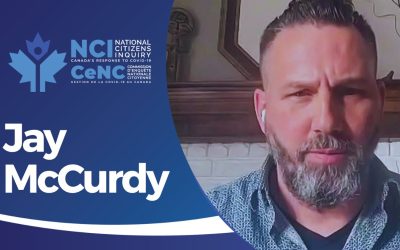Donate a computer and reboot a child’s life. That’s the goal of the Little Geeks Foundation.
The Toronto-based charitable organization distributes donated, refurbished home computers, with a free Internet connection for a year, to children in need.
A computer can help change their lives, said tech expert and author Andy Walker, founder of Little Geeks.
“It’s just a gateway to anything’s possible,” said Walker.
“I think it’s a window of opportunity for them. They are not isolated. They are not stuck there and they can see what’s possible in the world.”
Walker said he believes putting a computer in a home where there otherwise might not be one will help a child with literacy and learning.
“You are interfacing with a device where you are either forced to write to communicate or read to receive information.”
It’s not a passive activity, because students are going to learn without realizing it, said Walker, also founder of Internet tech column Cyberwalker.com.
“They have to be savvy with the technology that they are going to learn naturally. Then they’re going to have skills built in simply by being on the Internet and reaching out through the Internet that will be marketable and bring them up to the level of their peers going into high school and university.”
Little Geeks will hand out 100 computers to needy kids in the Toronto area on Thursday.
Walker said the goal is to hand out 1,000 by the end of the year, but more computer donations are needed.
While the program is only available in the Toronto area, Walker said he hopes to extend it throughout Canada, the United States and internationally.
Kids between the ages of seven and 17 can apply online for a computer, or their parents or guardians can do it for them. They can also be recommended for a computer by teachers or social agencies. Household income is taken into consideration.
High school teacher Michael Zwaagstra said a computer is an additional resource tool to be used with support and guidance.
“The main caution I would have is not to see this program as a panacea for all learning problems,” said Zwaagstra, who’s also a research associate at the Winnipeg-based think-tank, Frontier Centre for Public Policy.
Zwaagstra has written about studies indicating that greater access to computers at school doesn’t mean higher academic achievement.
The best way to learn is focused time with caring adults, said Zwaagstra, who teaches near the community of Steinbach, in southeastern Manitoba.
“That by far is what I would see as the most beneficial thing, certainly more than any piece of technology.”
Walker said his program has “mentor geeks” who are responsible for delivering the computer to the child’s home, setting it up and providing telephone and e-mail tech support for a minimum of six months.
Andrew Khan has been refurbishing computers for Little Geeks for a year and a half.
Khan, who had his first computer at age 11, said there were lots of kids in his neighbourhood who weren’t as fortunate. He said having a computer helps students with their homework, especially projects, and broadens their horizons.
“I think it just generally prepares them to get out in the world,” said Khan, a 29-year-old IT manager. “It helps keep them in contact with other kids.”
Walker said the year-long Internet connection can be extended.
“The only reason we say ‘free for a year’ is because of our funding situation,” Walker said, adding each connection costs $25 to $30 monthly.
“But our intention is that every child who wants an Internet-connected computer and can’t afford one, should get one. It is actually very disappointing, as far as we’re concerned, that nobody has stepped up as a national sponsor of our program. And we thought that would be the easy part.”
He also said safety is paramount and each computer comes with a program to filter out inappropriate websites for children.
Parents and their kids also have to agree to a training session on Internet safety, and the kids have to stay in touch with Little Geeks to let the foundation know what they’re doing with the computer.


